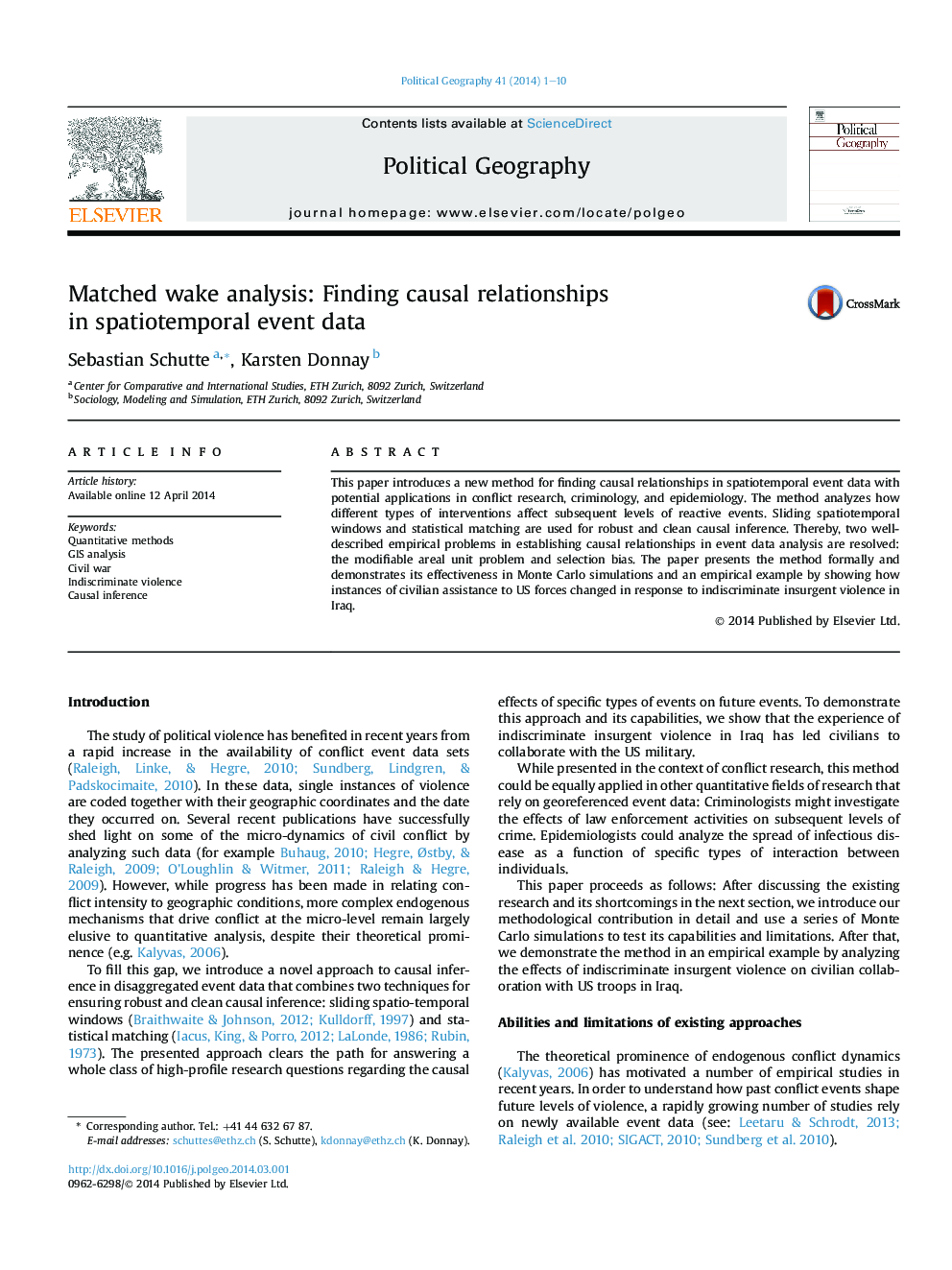| کد مقاله | کد نشریه | سال انتشار | مقاله انگلیسی | نسخه تمام متن |
|---|---|---|---|---|
| 1061930 | 1485591 | 2014 | 10 صفحه PDF | دانلود رایگان |
• Two core problems for causal inference in conflict event data are selection bias and the modifiable areal unit problem.
• The article proposes a novel methodological setup that is suitable for solving both problems simultaneously.
• The method is verified and tested in Monte Carlo simulations.
• We demonstrate the merit of the method empirically by analyzing the effect of indiscriminate insurgent violence in Iraq.
• A software package in R that implements the method has been released to the public.
This paper introduces a new method for finding causal relationships in spatiotemporal event data with potential applications in conflict research, criminology, and epidemiology. The method analyzes how different types of interventions affect subsequent levels of reactive events. Sliding spatiotemporal windows and statistical matching are used for robust and clean causal inference. Thereby, two well-described empirical problems in establishing causal relationships in event data analysis are resolved: the modifiable areal unit problem and selection bias. The paper presents the method formally and demonstrates its effectiveness in Monte Carlo simulations and an empirical example by showing how instances of civilian assistance to US forces changed in response to indiscriminate insurgent violence in Iraq.
Journal: Political Geography - Volume 41, July 2014, Pages 1–10
